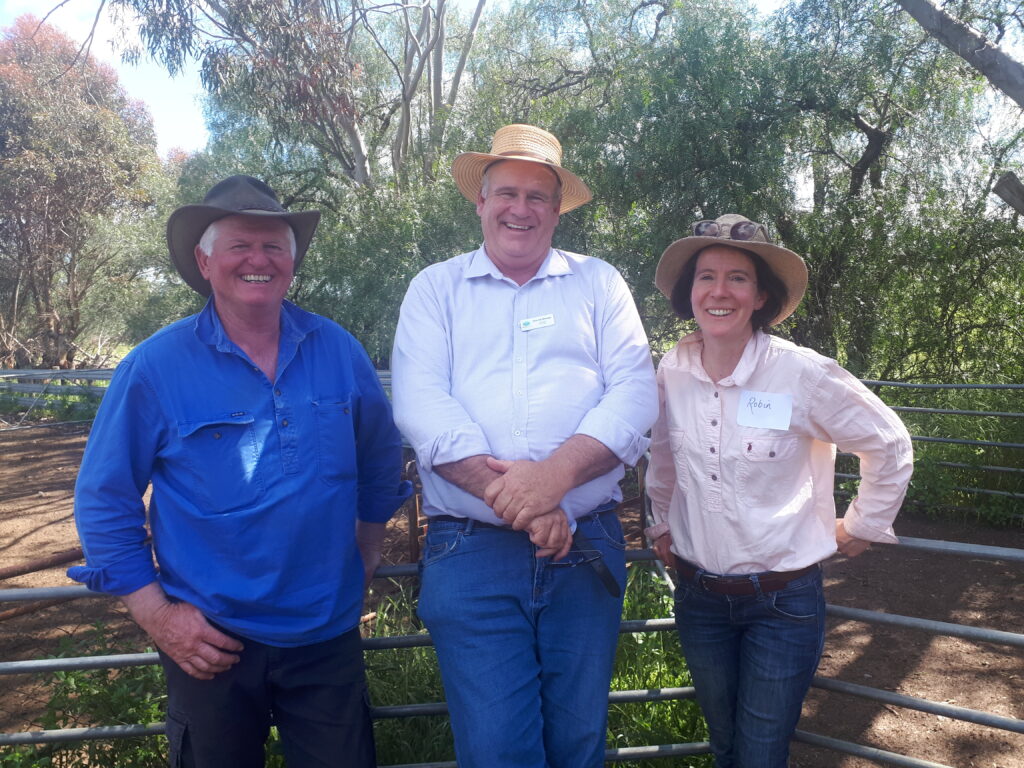Australia’s longest running rural landholder survey
This survey has now closed. We will share results as soon as we have them. Thank you to everyone who took the time to complete a survey.
Surveys have landed in farmer’s mailboxes across the Wimmera as part of Australia’s longest running research project of its type.
Southern Cross University has sent 2000 Wimmera Rural Landholder Surveys to a random selection of landholders of small and large properties.
Dr Hanabeth Luke is leading the fifth survey for us, which is now part of a national project ‘Surveying On-Farm Practices Across Australia’ being undertaken by the Soil CRC. Project partners, Southern Cross University, Wimmera CMA and Charles Sturt University are all participants in the Soil CRC.
In addition to the Wimmera, the national survey also covers North Central Victoria, the Eyre Peninsula of SA, the WA Wheatbelt, Central West NSW and Tasmania.
Dr Luke has worked closely with leaders of the four previous Wimmera surveys, Professor Allan Curtis and Dr Emily Mendham from Charles Sturt University, which assists greatly in ensuring continuity and consistency.
Keen to participate? This is how:
- If you would like to complete the survey online, please go to soilcrc.com.au and click on Wimmera Survey in the top menu bar.
- Dr Luke assures survey participants of complete confidentiality. If you receive a survey and have questions, you can email her at Hanabeth.Luke@scu.edu.au or phone 1800 317 503.
- The survey is supported by us through funding from the Australian Government’s National Landcare Program and by the Soil Cooperative Research Centre (Soil CRC) as part of a national project ‘Surveying On-Farm Practices Across Australia’.
What’s in the survey
The confidential survey asks questions about long-term property plans and farmers’ views about the soil, wetlands, rivers and streams on their land.
It also asks for views on soil management, native vegetation clearing, soil carbon, Aboriginal heritage and funding for on-farm environmental projects. Other topics include types of farming, farming practices, farmers’ preferred sources of information, succession planning and why people’s farms are so important to them.

Previous Wimmera surveys were conducted in 2002, 2007, 2012 and 2017 and have helped guide investment into land and water management.
Wimmera CMA Board Chair Peter Hilbig said survey results gave the CMA a comprehensive understanding of past and future trends in land management, but most importantly, helped identify the requirements and needs of landholders right now.
“The CMA pores over these results because they allow us to further understand the issues facing farmers, and we can then strongly argue a case for projects and funding that will have the most impact and relevance for our region in the long-term.
“This knowledge from the grass roots complements the great guidance and feedback we receive through our everyday work with landholders, and helps strengthen the partnerships we have with the farming sector. This is really important when we are working on environmental projects on private land.”
Mr Hilbig said the highest ranked property issue in 2017 in the Wimmera was the impact of drought and changing rainfall patterns on property viability. The 2017 survey also found that 45% of Wimmera croppers used minimum tillage and 31% used precision farming. Almost 27% of graziers had fenced native bush or grasslands to manage stock access and 34% had established stock containment areas.
Mr Hilbig said although they had the ability to compare results between surveys, the CMA was first and foremost focussed on current issues.
“So much has happened in the agricultural space since 2017 including a boom in technology, wet cropping seasons, COVID and hikes in the cost of inputs such as fertilisers and fuel. We look forward to gaining a better understanding of priority issues for Wimmera farmers and how best we can support them.”
He said the CMA was pleased to be adding Wimmera farm data to the national project and contributing to creating a clearer picture of key priorities for farmers right across the country.




